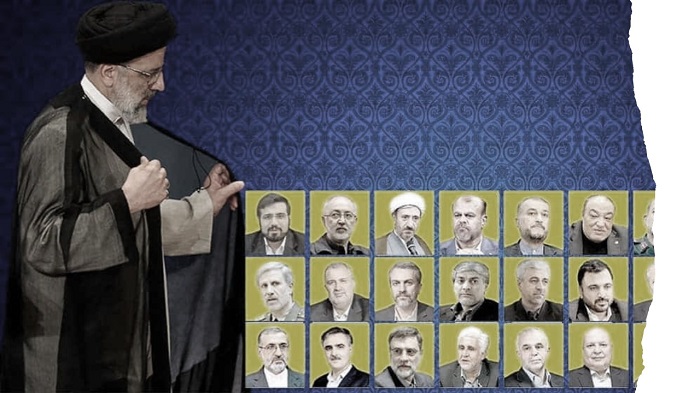
In June, Ebrahim Raisi was confirmed to become the next president of the Iranian regime. His rise to power had been planned all along by the Supreme Leader Ali Khamenei, who was set on consolidating power to prepare the regime for mounting social unrest in Iran.
Back in January 2018, demonstrations erupted in over 100 cities and towns in Iran calling for regime change. Another major uprising followed in November 2019, this time protests spread across 200 cities and towns. The regime retaliated in fear to suppress the unrest, which resulted in 1,500 protesters being fatally shot. A further 12,000 were arrested and many later faced months of torture under orders from the judiciary, who at the time was led by Raisi.
The National Council of Resistance of Iran (NCRI) said, “Under the Iranian regime’s system of “velayat-e faqih,” or absolute clerical rule, no one may directly challenge policies or edicts expressed by the supreme leader himself. However, in the wake of the 2019 and 2020 sham elections, Khamenei eliminated all rivals since his regime could not tolerate the slightest opposition.”
In fear of future uprisings, Khamenei also played a part in handpicking the members of Raisi’s administration to further assist in helping him consolidate power. As a result, the current presidential cabinet features criminals, thieves, and terrorists.
Up to two-thirds of the Iranian government’s 19 ministerial positions are held by former top commanders of the regime’s Revolutionary Guards (IRGC), an organization who have been given a terrorist designation by the United States. Many of the cabinet members are also subject to economic sanctions by either the US, the EU, or the UN, and some are sanctioned by all three. Interior Minister, Ahmad Vahidi and the Deputy for Economic Affairs, Mohsen Rezaei, are also wanted by Interpol for previous terrorist activities they were involved in.
The NCRI said, “Shockingly, none of this has prevented European leaders from approaching the Raisi administration with the same sense of friendliness and conciliation as it applied to dealings with its so-called “moderate” predecessor.”
The European Union even sent Enrique Mora, one of their officials who was in charge of the negotiations over the regime’s nuclear program, to Raisi’s presidential inauguration in August. A complete insult to those who have suffered at the hands of Raisi and other members of his administration.
The EU also remained silent when it came to dealing with the 1988 massacre in Iran, during which Raisi played a pivotal role. He was appointed as one of four officials who sat on a panel known as the ‘death commission’ and was tasked with implementing orders for the mass execution of political prisoners. Most of the 30,000 prisoners sentenced to death were members of the People’s Mojahedin Organization of Iran (PMOI/MEK).
The NCRI said, “Raisi’s early assaults on the MEK are mirrored by the history of some of his cabinet appointees, whose affiliation with the Quds Force and IRGC intelligence often put them in direct conflict with activists who supported the Iranian Resistance’s vision for a democratic alternative to the theocratic dictatorship.”
The MEK, to this day, have continued to fight against their oppressors and organized mass boycotts, earlier this year, of the sham parliamentary and presidential elections. As a result, both elections had extremely low voter turnouts.
Iranians, both in Iran and abroad, have made it absolutely clear that the current presidential administration does not represent them, and they will continue to fight for the regime’s overthrow.